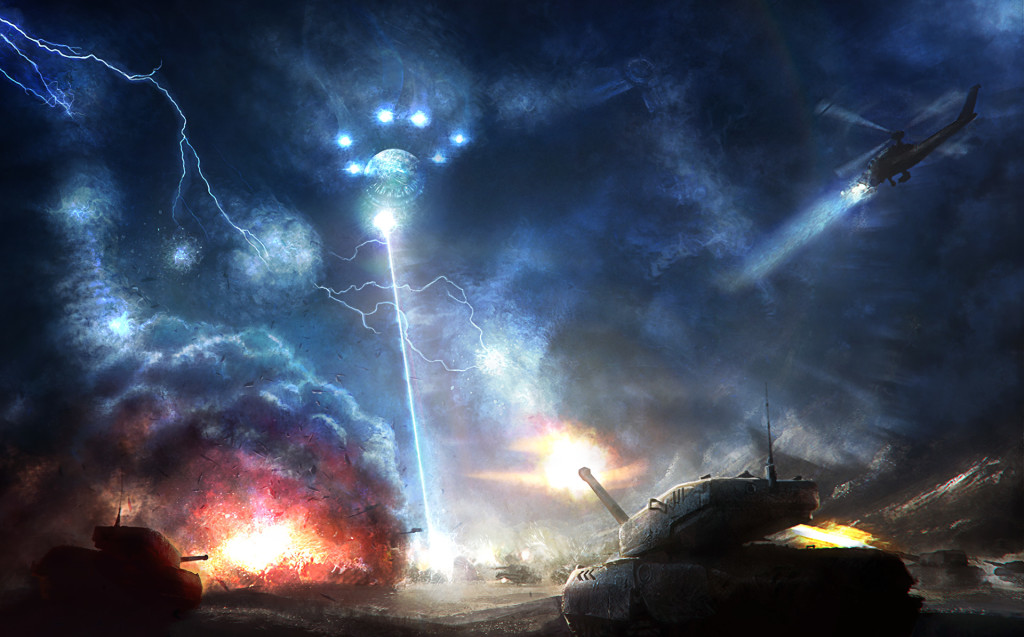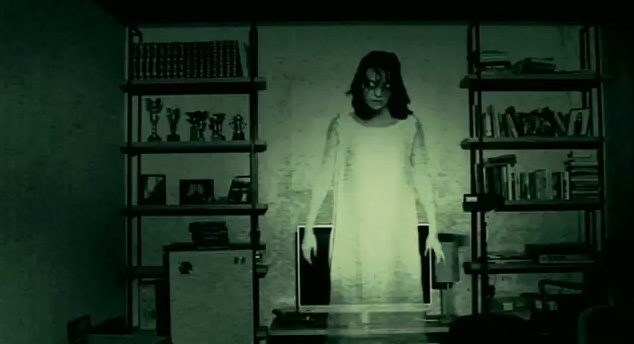If you’re new to the Scriptshadow Script Challenge, here are all the previous posts…
WEEK 0
WEEK 1
WEEK 2
WEEK 3
WEEK 4
WEEK 5
WEEK 6
WEEK 7
WEEK 8
WEEK 9
WEEK 10
Week 11!
Week 2 of the rewrite!
Happy times.
Assuming you haven’t ditched your script in favor of catching Pokemon, you’re knee-deep in a rewrite that’s probably causing you a lot of consternation. One of the shittiest things about rewriting is that, a lot of the time, the solutions you came up with in your outline won’t work. And because of this, instead of rewriting, you’re back to problem-solving. And when you’re problem solving, you’re not writing. Which means your script isn’t progressing.
What a lot of writers will do is let these difficulties linger. A day goes by, then two, then a week, then a couple of weeks. All of a sudden, you’re in the middle of full-blown writer’s block. The script becomes the enemy, and the only way to defeat it is to avoid it.
I read an article once by a professional screenwriter who said that with every script, you’ll have 3 to 4 moments where you encounter an INSURMOUNTABLE problem. You become convinced that your script is flawed and that it cannot survive. So before you freak out, know that this is something LOTS OF WRITERS endure.
Here’s the great thing about these moments. Solving them almost always raises your script to the next level. Something about solving this problem helps you see the script in a whole new way, and all of a sudden you’re reinvigorated, because you know your script is THAT much better. So don’t go jumping off a cliff when these moments arrive. Engage in the challenge, knowing that on the other side is a pot of gold.
What I DON’T want you to do is take time off. Or fiddle around on the internet. We don’t have time for that. We’re on a deadline. And remember, part of this experiment is preparing you guys for when you have real deadlines in the professional world. You need to be fighters. So here are five things you can do to overcome your script problems.
Book It – Read a book in a similar genre – Reading other peoples’ work, especially really good work, inspires people. And that inspiration can lead to ideas. And it’s only a matter of time before one of those ideas leads to a solution. There are a couple of things to keep in mind here. Do not read a book that’s in the exact same genre as your movie. The reason for this is that the solution you find may be the exact same solution they used, and now your script comes off as a copycat. Read something slightly different. So if you’re writing Star Wars, read something like Cloud Atlas.
Now if you’re really struggling to find the solution this way, here’s a trick. With every single unique element that pops up in the book, stop and ask yourself, “Could this work as my solution?” Let’s say, for example, that your problem is you want a unique murder scene in your movie, something unlike any murder scene ever made. You’re reading your book and you come across the sentence, “Joe moves the shower curtain to the side.” Think to yourself, “Shower curtain. Is there anything I can do with shower curtains? Hmmm. Maybe the murder takes place in a shower. Maybe we put the murderer, who’s really a man, in woman’s clothes to add to the confusion.” And just like that, you’ve created the shower scene from Psycho! That’s a bit of a stretch but the point is, YOU NEVER KNOW where solutions will come from. So consider every angle, even something as mundane as a shower curtain.
List it – One of the problems a lot of writers have is they think too logically. And to a certain extent, that’s a required mindset for screenwriting. Your movie has to make sense and characters have to act in a logical manner. But to come up with solutions, you may have to think illogically to spark the unconscious side of your brain, the side that’s truly creative. Lists are a great way to do that. What you do is open a new document and write down TEN or TWENTY solutions to your problem. The catch? You can’t judge your answers. The second you start judging, your logical mind takes over. We don’t want him around.
Now the reality is, a lot of your solutions will be cliche, because cliches are always the first things that come to mind. That’s why I prefer 20 solutions to 10. Once you get past 10, you’ll find yourself being more creative. Again, don’t filter yourself. Anything goes. Solutions often come from the most unexpected places. If we’re the writers of Zootopia, the best movie ever, and our problem is that we have no idea where our climax should take place, here’s what our solution-list might look like…
1) The forest.
2) Inside of an apartment.
3) The zoo.
4) Out on the farm where she grew up.
5) In the human world.
6) Underground.
7) In a supermarket.
8) We reveal that their amazing zoo world has actually been a simple zoo in the Bronx all this time. They just imagined it to be this way.
9) In a museum.
10) In a giant human office building where they have to steal something from the humans. Maybe the humans who own the zoo?
Are these great ideas? Uh, not really. But that’s okay! You’re not being judged on how great the idea is. You’re trying to spark your mind and think of the problem and its solution in a slightly different way. By not filtering yourself and writing down whatever the hell comes to mind, you just might find the answer you’re looking for.
Walk it – No, this doesn’t mean go for a walk and look for Pokemon. It means go out and THINK about your script. The reason walks work better than staying in your apartment is that you already know everything in your apartment. You know that TV over there, that chair over there, that plant over there. Your mind isn’t being challenged with any new information. Walk around and really TAKE IN your environment. Look at things you don’t normally look at. For example, look up. We stopped looking up when we were kids. Look fucking up! Look anywhere but the places you usually look. And during your walk, keep your problem front and center. Whatever you see, apply it to your problem. If you see a pink cadillac, ask yourself if a pink cadillac is part of the solution. If the driver has a handlebar mustache, ask yourself if disguising your main character in a handlebar mustache is the solution. Really let your mind wander and be creative. And try to take different routes each time out. Don’t always go on the same walk. Just like your apartment, the information will cease to be new.
Sleep it – This should be something you’re doing regardless of your rewrite. Every time you go to sleep, you should be thinking about the biggest problem in your script and trying to come up with a solution. This is the most peaceful time of the day, when your mind is at its clearest. Take advantage of that. But there’s a trick to this. Write the problem out in the form of a question AS SPECIFICALLY AS POSSIBLE ahead of time. One of the reasons writers struggle to solve a problem is they never clearly define the problem in the first place. The more specific the question, the easier it will be to solve. So let’s say we’re writing Ant-Man and the heist sequence isn’t working. You don’t want your question to be, “How do we make the heist sequence better?” Take a deeper look into WHY the scene isn’t working so your question can be more specific. Maybe it seems too mechanical, and you feel like it needs more emotion. Then the question can be, “How do we add more emotion to the heist scene so that the audience actually feels something?” And you can be even more specific than that. In fact, the more specific the question, the closer you are to the answer.
Write it – This may seem like the most obvious solution. Write your way out of the problem! But this is a complicated solution. If you don’t have a plan and you just start writing, you may write something so shitty that you never want to look at your script again. You may write something so shitty that you convince yourself the problem is unsolvable. You might dirty up the screenplay with some weird random glub of junk that, if complex enough, would require a lot of careful seeking and deleting to return your script back to the place it was before that horrible tangent. So here’s a compromise solution. Open a new document separate from your script and write the scene or sequence or changes in there. With it being an entirely new document, you don’t have to worry about it affecting your script if it sucks. You’re just experimenting, playing around, and seeing what works. This can be quite liberating as there’s literally NO PRESSURE. And I actually encourage writers to write several variations of the scene in the same document. Just see where your mind takes you. If you happen to come up with something that works? Simply cut and paste it into your official script!
These are just a few ways to help solve problems in your script so you don’t go into Writer’s Block World. Feel free to offer some of your own ways of solving script problems in the comments section.
Rewrite Goal (Week 11): End of first half of the script! (somewhere between pages 50-60, depending on overall script length).
Seeya next week!
Genre: Biopic
Premise: The true, and at times shocking, story of how the Oxford dictionary was created.
About: This was a big project around 2001. Mel Gibson’s company bought the rights to the book it was based on. At one point, Luc Besson was tapped to direct. The script’s original writer, Todd Komarnicki, has had a bit of a spotty career, but actually just landed a huge assignment. He scripted Sully, which you may remember me opining about in my newsletter. The script was then rewritten by writer-director John Boorman, who’s done a million things, including Excalibur, Exorcist 2, and a dialogue polish on Deliverance.
Writers: Todd Komarnicki (rewrite by John Boorman) (adapted from the book by Simon Winchester)
Details: 121 pages
How does one make the dictionary interesting?
How does one make any inherently boring subject matter interesting.
I’ll tell you how.
Murrrrrrrr-derrrrrrrrrrr.
Like Pokemon Go or Chewbacca Mom, murder makes everything more palatable! And that’s what caught my interest with this long forgotten project. You see, unfortunately for “Madman,” it hit the streets long before the biopic craze. Hell, even before the Black List craze. And therefore this offbeat tale of how the Oxford dictionary was conceived never built enough buzz to turn the light green.
If this had been written today, however? I have no doubt it would already be in production. True, Squirtel or Bellsrpout might have played a prominent part. But who ever said making movies was easy? Quentin Tarantino almost cast a no-name female actress as one of the gang members in Reservoir Dogs because her boyfriend promised to give the production 1 million dollars. Casting Squirtel as a dictionary is a no-brainer.
It’s 1872. It’s London. It’s dirty. But most importantly, it’s a definition-less city. All this language is being bandied about by 3 million people, yet nobody has a reference for how to correctly say any of it.
James Murray wants to change that. He wants to do what Oxford has tried and failed to do for decades now – write a dictionary. A container of every single word and its definition in the English language. The reason this hasn’t been accomplished yet is because nobody knows how to accomplish it! Nobody even has a game plan for rounding all these words up.
Enter Dr. Minor. Actually, let’s back up a little. Dr. Minor was a surgeon in an American war who branded a soldier with a giant “D” on his face after that man tried to desert the army. After the war was over, Dr. Minor became convinced that the soldier was attempting to find him and kill him.
Dr. Minor escaped to London, only to find the man still stalking him (or so he believed). He finally ran into D-Man and shot him dead. Except it turned out Dr. Minor didn’t shoot the correct man. It was just some random Londoner. After going through the English court system, Dr. Minor was considered crazy-town, and sent to an asylum.
From there, we cut back and forth between Murray’s tireless quest to find and define all the words ever, and Dr. Minor, who becomes sort of the “Andy Dufresne” of his asylum, helping others learn art and accumulating a mini-library in his cell.
When Dr. Minor hears that Murray is building a dictionary from scratch, he decides to help, meticulously going through every book he owns, writing down a definition for each word, and sending them to Murray.
In the meantime, Dr. Minor must deal with the guilt he feels over leaving a woman and her children without a husband and father. And when he tries to mend that fence, eventually meeting the widow for the first time, things don’t go as planned. I suppose that’s why life cannot be defined.
Have you ever thought of how difficult it would be to create a dictionary from scratch when one had never been written before? Think about that for a minute. You don’t have the internet, remember. You don’t even have a list of the words to define yet! Where would you begin?
That question definitely pulled me in. But then reality hit. How would you DRAMATIZE that? That’s the question you must ask with any idea you come up with. How do I dramatize this? In some cases, the idea itself incites drama. In other cases, you’ll have to go looking for it. It is my belief that if you have to go looking for it, it probably isn’t a movie-worthy premise.
Drama /drämə/ (noun) – an exciting, emotional, or unexpected series of events or set of circumstances.
To understand that statement better, here are two premises. Notice how one is dripping with dramatic possibility, while the other doesn’t have a dramatic bone in its body
1) When a private plane full of rich passengers crashes on a barren island, the people on board will devolve into the worst versions of themselves in order to survive.
2) A private plane escorting a soccer team to the West Coast allows its passengers to explore the power of friendship.
Do you see the difference here? How the first idea bleeds drama, meaning you can already imagine tons of scenes in your head. Whereas with the second one, you probably can’t think of a single scene. This is the kind of thing to be aware of when coming up with ideas. “Do dramatic scenes start popping up in your head after reading the premise?”
To “Madman’s” credit, it finds SOME dramatic elements. But it’s not as juicy as the title would have you believe. The big murder that takes place happens at the beginning of the movie, and then that’s it as far as murder.
Pokemon Go /ˈpōkiˌmän/ (noun) A video game by which people with little to no lives chase miniature monsters in a virtual world created by their phone.
I thought there was going to be some competition – like two dictionary groups trying to beat each other out to win the historic prize of first-ever-dictionary. And that they would’ve resorted to murder to win the competition.
The reason that would’ve worked better is that now you have something to BUILD TOWARDS. You can build towards the growing frustration, the growing tension, the impending murder. We know that things are coming to a head and we’re excited! But when you murder someone before the main story even begins, you’ve eliminated that chance to build.
We talked about this yesterday. We built towards this big rescue, but then were done with it by the midpoint. What’s left to build towards? That’s another question you want to be aware of. Am I still building towards the most powerful moment in the story? Because if the most powerful moment in your story is in the rearview mirror, there’s something wrong with your structure.
“Madman” does its best to mitigate these problems by creating a strange love story between Minor and the woman whose husband he killed. And then with Murray, we see him stressing out a lot under the pressure.
But where the story really struggled was in its stakes. The script never answered the question: WHY DID THIS NEED TO BE DONE? And WHY RIGHT NOW? If they failed, what would happen? Lots of bad grammar? Time has proven that we’re going to have that problem whether there’s a dictionary or not.
I’ll give you an example of stakes from another English period piece with a somewhat similar setup: The King’s Speech. The King attempts to get rid of his stutter in order to warn the world of Hitler (just like Murray is attempting to finish this dictionary) with the difference being that HIS SPEECH MATTERED. It needed to be done. And fixing his stutter did matter RIGHT NOW because time was running out to stop Hitler.
As far as I can tell, finishing this dictionary is more of a prestige thing. Everyone involved just thinks it would be rad to achieve it. That’s fine. But that’s not movie stakes.
Despite this, “Madman” moves along with just enough strangeness to keep you curious. Dr. Minor, for example, was convinced that the man chasing him could raise spirits from Hell to find him. And who would’ve thought he’d bag the woman whose husband he killed?? I mean I’ve seen some strange attempts to get a woman’s attention before, but never one quite like that.
[ ] What the hell did I just read?
[ ] wasn’t for me
[x] worth the read
[ ] impressive
[ ] genius
What I learned: If your script covers a long period of time, and therefore doesn’t have a lot of urgency, a nice trick is to add a cross-cutting storyline that will help move through time effortlessly. We saw this with The Martian. By cutting back to earth, we could come back to Matt Damon 3 months later and the audience wouldn’t blink. That same 3-month jump becomes a lot more prominent if we’re with Matty the whole time. We do that here too. One of the ways they disguise the years it takes to write this dictionary is by cutting back and forth between Minor and Murray. Each time we cut, we do so 3-6 months ahead. So if masking a huge swath of time is a problem, consider a second narrative you can jump back and forth from.
What I learned 2: Potentially mundane subject matter is the perfect subject matter to add weirdness to because it’s unexpected. For instance, if I said I’m writing a movie about the ice cream truck business, you’d be like, “Wonderful. Let me know how it goes.” But if I said I was writing about a war between two ice cream truck drivers fighting over the same turf (a real project that just got picked up), that combination of mundane and weird would intrigue you.
Genre: Western
Premise: A sheriff and a slave must team up to rescue a politician’s daughter, who’s been kidnapped by the slave’s previous owner.
About: This one finished on the 2012 Black List. The writers of the script, Russell Sommer and Dan Frey, used the buzz from the placement to sell a Chronicle-like pitch to Paramount soon afterwards, but in the time since, still haven’t written a breakout project.
Writers: Dan Frey & Russell Sommer
Details: 108 pages
Assuming you haven’t given up on screenwriting to become a full-time professional Pokemon Go player, and assuming you’re not down in line at your local cineplex trying to get front row seats to Friday’s Ghostbusters premiere, and assuming you’re not still reeling from Jim John going home on last night’s The Bachelorette episode, then it’s time to get your screenplay review on.
A little background on why I chose to review this. It’s got the perfect setup for a conflict-heavy adventure. A slave has to team up with a white sheriff to rescue a kidnapped woman. Now this isn’t the first time I’ve heard this idea or ideas like it. I know of a couple of other slave-sheriff team-ups as well as a few Jew-Nazi team-ups.
And for whatever reason, despite the red-hot conflict being seared into the premise, nobody’s ever made it work. It’s almost like the setup is TOO good. Like when the U.S. took all their best basketball players to the Olympics that one year and they didn’t win the gold. The team was literally too good to be true.
Is that a real thing? Is it possible for a concept to be too good? I don’t know. But maybe today’s review, along with a few Pokemon Go catches, can shed some light on the mystery.
Bleeding Kansas starts off with slave, Judah, killing one of his masters, then grabbing his wife, also a slave, and making a run for it. He escapes but she, unfortunately, does not. Five years later, we see a battle-hardened Judah robbing stage-coaches for a living. When he saves up enough gold bars, he plans to buy a mustang ranch. Judah REALLY LIKES horses. Like even more than The Bachelorette contestants in last night’s creepy almost horse-sex scene.
Meanwhile, politician Charles Robinson is trying to win the Kansas election so he can finally free all the slaves in the state, but is up against bully incumbent, Governor Sherman. When Robinson gains momentum in the polls, Sherman hires a slaver, David Atchison, to kidnap Robinson’s daughter, KC, until the election is over, figuring it will force Robinson to drop out.
But Robinson doesn’t drop out. He gets Sheriff Colin Schumacher to find his daughter. Meanwhile, Judah finally gets caught stealing and is scheduled to be hanged. But when it’s revealed that Atchison used to be Judah’s master, Colin realizes Judah might be able to help him get KC back. So he reluctantly teams up with Judah and Judah’s girlfriend-horse to right this wrong.
After finishing Bleeding Kansas, I flopped my arms out to my sides and made a noise like, “Humph.” To me, this is the worst kind of script there is. No, it’s not a bad script. Bad scripts can actually be entertaining. But a “humph” script. Everything is competently written. The script even takes a few chances. But there wasn’t a single element that rose to the level of “Holy shit.” And when you’re writing subject matter that’s this dark, you need some Holy Shit moments.
I’ll give you a couple of examples. Bone Tomahawk, another Western. Google the Bone Tomahawk torture scene. It’s the most brutal thing maybe ever put on film.
Or I’ve been catching up on Mr. Robot lately. There’s a scene where our villain CEO character goes downtown, finds this barely-able-to-stand 60 year old homeless man, and we watch as they negotiate a price. We don’t know what they’re negotiating for yet. Finally, the dejected homeless man agrees to 300 dollars, and after he pockets it, our CEO character casually puts a pair of rubber gloves on, and proceeds to beat the shit out of this guy. It’s such a disturbing scene. But the point is, it affects you. It jolts you. It lets you know that you are not safe in this universe. And I felt too safe in Bleeding Kansas.
I don’t need you to blast through the ceiling of expectation in a movie like Crazy, Stupid, Love. But if you’re going to take me into the world of slavery – or any dark subject matter for that matter – I have to see some things that shock me. I have to feel UNSAFE!
That’s not to say this was some by-the-books screenplay. In fact, Frey and Sommer made an interesting structural choice. Instead of placing the invasion on the kidnapper’s farm at the climax, it became the midpoint. And then the team is chased back through hostile terrain on the way back home.
I applauded that choice because it was unexpected. But a choice like that doesn’t come without its drawbacks. When you take something that contains all the power of a climax and you place it at the midpoint, you’re releasing a ton of air out of your screenplay despite being miles away from your finish line. And the challenge becomes, how do you build that back up?
I mean imagine if they had destroyed the Death Star at the midpoint of Star Wars and the rest of the movie was the Empire chasing them back to their home planet. Would that have been a good movie? Maybe. Would it have worked as well as the current film? No way.
Another problem with Bleeding Kansas is you can’t read it and not think of how infinitely better Tarantino’s version was with Django Unchained. If you want to see just how good Tarantino is, compare his films to anything similar. His writing is so heads and tails better on every level, it’s more terrifying than horse-love. And as I was trying to think of a specific example that would show exactly what I mean, the answer came immediately.
The main relationship.
In Bleeding Kansas, the main relationship (Colin and Judah) is very straightforward, in-your-face, and on the nose. A black slave teams up with a racist white sheriff. They hate everything about each other and what the other stands for. Then look at Django Unchained, which could’ve taken a similar route. Instead, Django is teamed up with white German man who isn’t the least bit racist.
WHAAAAT? Screenplay teachers would’ve blown you up had you come to them with that outline. “But there has to be clear conflict!” they’d say. “Why wouldn’t you make Dr. King Schultz a southern racist hate-mongerer! You’d get so much more out of the relationship that way.” Well, Tarantino would counter, because that’s what everyone would expect! And while you may lose that conflict, you gain audience curiosity. They’re not used to this kind of team-up, so they want to know more.
To that end, my big takeaway is that sometimes a setup is too good to be true. If it’s too obvious, there may not be anything to explore. That’s not to say it can’t work. Conflict is still a good thing. But make sure you’re asking the question: Can I execute this in a way that isn’t obvious?
[ ] What the hell did I just read?
[x] wasn’t for me
[ ] worth the read
[ ] impressive
[ ] genius
What I learned: When you tackle fucked up subject matters, be prepared to go in fucked up directions, or risk a disappointed audience.
The writer of today’s script does something I’ve NEVER SEEN BEFORE in all my script-reading. Read on to find out what it is!
Genre: Sci-fi
Premise: When a blitzkrieg-style alien invasion occurs during a couple’s divorce proceeding, they must run back home by foot to save their children.
About: This is the hot spec of the moment, picked up by Spielberg’s Amblin shingle in what I think is a renewed dedication to finding projects that capture the wonder that Amblin used to be famous for. This is writer Pete Bridges’ first sale!
Writer: Pete Bridges
Details: 107 pages – undated
No less than three days ago, I called a writer out for some suspect choices on his title page that painted him as an amateur. So what am I to make of today’s script, where we not only get a map of the route our main characters take during the movie, but a Google Maps link that notes every single beat of the screenplay? For example, we get a marker for the “All is Lost” moment.
Now may be a good time to remind everyone that when I say, “Don’t do this!” think of it more as a suggestion than a rule. Because while I stand by my belief that doing out-of-the-ordinary things with your script (Huge titles in unique fonts, pictures, taglines, etc.) has more of a potential for disaster than success, none of it really matters as long as the writing is good.
Is The Fall good?
Megan and Sam Girard have just finished getting their divorce finalized in downtown Atlanta. It’s an odd moment. It’s not like these two hate each other. They have two beautiful children back in the suburbs. They seem to have a lot in common. They even consider grabbing a coffee before calling it a day!
As they work through this oddness, a plane falls out of the sky. And then another plane. And another. And everything turns off. Phones, cars, elevators. What’s going on? An EMP bomb? A solar flare?
Try aliens.
Before the two can say “E.T.,” a bunch of alien bombers swoop down and drop these magnetic blue balls that paralyze everyone nearby. It’s around this moment that the divorced duo realize: We gotta get home and save our kids. So they start running.
It doesn’t help that Megan is diabetic and getting ever closer to a diabetic seizure. They need to find her some insulin fast. And since everything – especially pharmacies – are being looted, that ain’t going to be easy.
As they make their way through the city, they discover more and more about these aliens, such as their on-the-ground soldiers, 7 foot tall alien thingeys called Slims, which move to the paralyzed people, zip them open, torture them, then take their insides. Yeah, not a fun way to die.
And with new alien ships coming in to suck up all the humans that remain, it’s looking less and less likely that they’re going to get out of this alive. But with the strongest motivator in the world pushing them (the desire to save their children), our duo achieves the impossible, making it past the majority of the chaos. But will they make it to the finish line? Not if the Slims have something to say about it.
So is The Fall good? Let me answer that question this way. It’s very tuned into the spec process. We have a light spin on a common setup (an alien invasion, but told in a single shot). We have tons of urgency. We have a clear goal with high stakes. We have an “event” like setup. This script bleeds GSU.
On top of this, Bridges makes a ballsy choice that I’ve NEVER seen before. There isn’t a single sentence outside of the dialogue that’s over a line long. Everything is one line! I don’t know if I love that idea but I sure as hell respect the dedication required to achieve it.
But let’s get down to the nitty-gritty and why these scripts are so hard to write. Anything that moves really fast is difficult to mine emotion from. You don’t have time to delve into your characters. Sure, you can have your occasional quiet moment where your characters hide out, catch their breath, and remember an incident from their past that helps us connect with them.
But it’s not the same as when you have real time passing. That’s the reason that “Allied,” the WW2 script I reviewed in my last newsletter, got into my Top 25. I felt like I spent a ton of time with those characters because I did. 2 in-script years passed before the second half of the screenplay, where everything was contained to 3 days.
Had we started the film as those 3 days had begun, it wouldn’t have left any emotional impact on us. Who cares if these two betrayed each other if we didn’t know them?
Ultra-urgent setups leave the writer in a tricky situation where they’re required to build emotion into these tiny little pockets where characters remember “emotional” things from their past. And while it’s better than nothing, it’s still hard to care since we weren’t there when any of these things happened. We’re only hearing about it in retrospect.
The best way to create emotion in fast-paced stories is 3-fold. You do it through:
Action.
Choice.
Interaction.
With action, you look at someone like Han Solo. His repeated ACTION throughout Star Wars is one of selfishness. He always acts selfish. Then in the end, he saves the day by acting selfless. Note that Han Solo never tells us about how his dad left him when he was four. That kind of thing doesn’t matter to most people, unless the story the character is telling is earth-shatteringly compelling. And it’s really hard to do that. The emotion comes from the actions he takes connected to his flaw.
With choice, I’ll give you an example from one of last year’s best movies, Inside Out (another script that takes place inside a very short time frame). The most emotional moment in that film occurs when Joy and Riley’s imaginary friend, Bing Bong, are trying to make it out of a deep cavern by riding a rocket up its side. They keep trying and keep trying and can’t seem to get enough power to reach the top. At that point, Bing Bong realizes that his extra weight is preventing the rocket from getting them all the way up. So he makes the CHOICE to stay behind. Joy makes it up on the next turn, but we’re devastated because Bing Bong is now gone forever. Choice creates emotion.
With interaction, you’re creating emotion through a desire to resolve character conflict. You have two people who don’t see eye to eye on something, yet they have to work together to achieve a common goal. If you’ve done your job and we want to see these characters resolve their issue, we will feel an emotional connection to them and their journey.
Of the three, this is the one The Fall executes best. It never goes overboard with Sam and Megan. But there are still things they never hashed out in their marriage. And we see a few of those things pop up as they make their way home. Was it perfect? No. But it was the right idea and the execution was solid.
I liked The Fall. It wasn’t perfect. It did borrow a lot from War of the Worlds. But it moved, it was entertaining, and you could see the movie in your head.
[ ] What the hell did I just read?
[ ] wasn’t for me
[x] worth the read
[ ] impressive
[ ] genius
What I learned: In the immortal words of Bonnie Raitt: “Let’s give them something to worry about.” Have you ever gone out to enjoy your day but in the back of your head, you couldn’t stop worrying about that one thing? Maybe you didn’t know how you were going to pay this month’s rent. Maybe your sister was having a big surgery tomorrow and you didn’t know how it was going to go. While this may suck in real life, this is EXACTLY what you want to make your reader experience in a screenplay. Instead of ONLY focusing on the goal at hand (get home to the kids), you want to have your characters (and by extension, the reader) worried about something in the meantime. Here, it’s Megan’s diabetes, specifically, where are they going to find her some insulin? This creates a sense of anxiety in the reader that keeps them invested. They will not be able to put your script down until your character solves that problem. So that’s today’s tip. Keep your reader worried!
Genre: Horror
Premise: Soon after moving into their new apartment, a young couple’s idyllic life begins to unravel in the most horrific ways due to the presence of a malevolent spirit.
Why you should read (from writer): I’ve been making a living as a screenwriter here in Mumbai for the last five years, before which I studied film in Los Angeles, and even worked on a few movies as a production assistant.
I’m a horror film connoisseur, and someone who swears by the holy trinity of horror cinema: “The Exorcist,” “The Shining,” and “Alien.” Although horror is my genre of choice, I’ve also secured paid gigs writing a crime-thriller, and a Hitchcockian suspense-thriller.
Following months of depression after failing to get my first horror screenplay produced, I went about writing a story which was far more contained, thereby cheaper to produce, and thus “Ghost Story” was born. “Ghost Story” is a slow burn horror-thriller in the vein of “The Shining” and “Paranormal Activity,” but without the latter’s found footage aesthetic. What sets “Ghost Story” apart is its matter-of-fact approach in presenting supernatural events in a real and believable way. Imagine “Insidious,” but with the real world aesthetics of “The Lunchbox.” It felt great when “Ghost Story” made the quarter-finals in Screencraft’s 2015 Horror Screenplay Contest.
For the past year, I’ve been paying the bills developing concepts — two action-thrillers, and one superhero-urban fantasy — for a local production company.
I’d sincerely appreciate your feedback on “Ghost Story” — not to mention feedback from the rest of the ScriptShadow community as well — because really I want to make it better. So fingers crossed, hoping this query email piques your interest!
Writer: Sarmad Khan
Details: 102 pages
Wow, so we got some interesting stuff to discuss today. We’ve got “quarter-finalist” of a screenwriting competition written on the title page. We’ve got a blueprint of the apartment the story takes place in on the first page. And we have a movie tagline (“Some secrets won’t stay buried.”).
If I’m being 100% honest? These are the kinds of things that get you tabbed as an amateur. They’re big red flags for readers.
Let’s say, for instance, that I received an e-mail from someone who said their script had made the semi-finals of the Nicholl. You know what my first thought is? “Okay, so this person isn’t a total newb. But if their script didn’t even make the top 5, it’s probably got its fair share of issues.”
Like we discussed the other day, even the scripts that win competitions have problems. So if your script didn’t even make the top 50, that’s saying something.
Now there are two sides to this argument. In a sea of competition, anything that proves you know what you’re doing helps. But there’s a certain point where it can work against you, and quarterfinaling or semi-finaling in smaller competitions may be that point. One thing we can all agree on is not to put any contest placement on your title page. Mention it in your query e-mail if you think it will help. But think long and hard about if your personal achievement will be seen as an achievement by professionals.
Moving on to Ghost Story!
36 year-old film editor Varum Desai has just moved into a new apartment in Mumbai with his retired party-girl wife, 27 year-old, Arya. The two seem to have a solid relationship except for a few snags underneath the surface. Arya wants to jump on the baby train immediately. Varum would rather wait until they’re financially ready.
While Varum spends his days in an editing suite, Arya keeps herself busy around the apartment with the help of her maid, who has an 18 month-old daughter. Almost immediately after moving in, Arya starts observing strange things. Cabinets being left open. Noises coming from the next room. At one point while napping, her phone mysteriously makes 13 calls to her husband.
Arya’s able to confide to fellow party-girl bestie, Kat, that something is up. But she’s afraid to tell her husband lest he thinks she’s crazy. That is until she finds the maid’s baby dead inside a running laundry machine. The cops blame the maid, but Arya’s fed up. She’s convinced this is an evil spirit.
So she heads over to the University of Mumbai and begs a local professor who specializes in spirits to come look at her apartment. The professor is skeptical, but eventually relents. Will she confirm that a ghost haunts the apartment? Or could their situation be a lot worse?
I actually e-mailed Sarmad ahead of posting this and told him my big worry – that everything here felt too generic. The logline – “Soon after moving into their new apartment, a young couple’s idyllic life begins to unravel in the most horrific ways due to the presence of a malevolent spirit” sounds like every haunted house movie ever. The tagline: “Some secrets won’t stay buried” may have literally been used on over 200 posters throughout time. Even the title is the most generic title you could possibly imagine:
“GHOST STORY”
So why did I put it in Amateur Offerings? Because Sarmad’s query was the most professional of anyone submitting a screenplay in the past three months. He may not have had the most original concept. But his writing was smooth, concise, clear, and made you want to believe in him. My hope was that THAT side of Sarmad would override the generic side. Did it?
Not for the first 60 pages it didn’t. I mean, we went through about every horror cliche we could possibly go through. Open cabinets? Noises in other rooms? Guys, when you’re writing in any genre, you have to find new ways to explore old ideas. You have to find new ways to make things go bump in the night. Otherwise you’re going to put us to sleep.
But then Ghost Story pulled off a hail mary. Once we start investigating WHY the haunting was happening, the story got a lot better. Whereas before, each scene felt like plug and play, now we were learning about an extremely unique backstory where Varum’s brother killed a little girl when they were kids, and that girl had become the ghost.
I couldn’t believe that in a script where 30 pages ago, I was wondering if it would beat the jump-scare record, I was now reading a carefully crafted character piece about a marriage that was on the rocks.
It’s so clear to me why this only made the quarter-finals. Those first 60 pages are a struggle. In fact, I would go so far as to say some readers never made it past page 60. They acknowledged that the writing was good, and that was enough to get the script through. Which is why I warn writers against the slow burn. If your script doesn’t start cooking til the halfway point, expect most readers to bail before they get there.
Regardless of what you thought of the first half of Ghost Story, the most important thing here is that this CAN BE A MOVIE. And 90% of the scripts I review on Amateur Friday can never become movies, no matter how much work the writer puts into them. This can.
But Sarmad needs to rethink those first 60 pages. He has to throw out every single scare he’s written and replace it with something better. He then needs to integrate the kind of character work and intrigue that he achieves in the last 40 pages in the first 60. More needs to be going on here than a woman wandering from room to room. Because that’s what I would’ve titled this script if I’d only read 60 pages of it: “Woman Walks From Room to Room.”
You might want to bring another character in to add some intrigue. Shit, I thought bringing the dangerous brother, Vikram, in would’ve spiked that whole section. Create a “ghost story” version of “Sex, Lies, and Videotape.” No worries if that complicates your story too much. The point is, MORE needs to happen in the first half, and MORE ORIGINAL scary shit needs to happen in the first half.
This script has serious potential despite its weaknesses, and because of that, I think it’s worth the read.
Script link: Ghost Story
[ ] What the hell did I just read?
[ ] wasn’t for me
[x] worth the read
[ ] impressive
[ ] genius
What I learned: This script is proof-positive that when you delve into the characters (the histories, the cracks in relationships, the inner flaws, the secrets, the denial), scripts get better. It’s a tale of two halves here. The first half is completely superficial, where it’s all about ghosts and jump scares. Boring. The second half is about a dark ass history with these characters and how that’s gotten them into this mess. And yes, I know that you can’t unload all of your character shit right away. But you have to unload SOME of it. You have to hint at SOME of it. I didn’t even know these two were interesting people until page 60, when they started talking about what was really going on. Don’t make that mistake!











